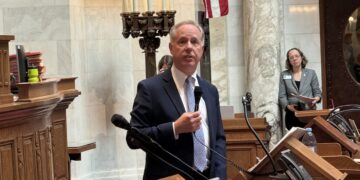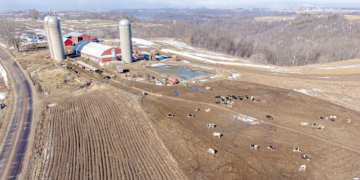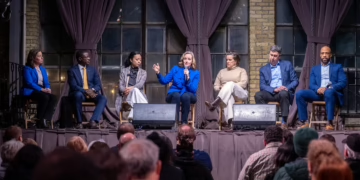While many states are cooperating with the Trump administration’s aggressive push to tighten voter list enforcement, Wisconsin has taken a more cautious stance—rejecting expansive federal data requests and asserting state control over election systems.
In March, President Trump signed an executive order directing sweeping changes to how states maintain voter rolls. The order requires the Election Assistance Commission to mandate proof of citizenship on federal voter registration forms and demands aggressive enforcement of federal laws governing election integrity, such as the National Voter Registration Act and the Help America Vote Act.
As part of the administration’s rollout, the Department of Justice has sent letters to 19 states, requesting voter registration data, maintenance protocols, and information-sharing agreements. Wisconsin is one of those states.
The DOJ contacted the Wisconsin Elections Commission (WEC), citing complaints and requesting the full statewide voter roll, along with detailed data on how the state verifies voter citizenship and manages inactive files.
In response, WEC officials informed DOJ that state law prohibits the free release of such data—even to the federal government. The agency explained that acquiring Wisconsin’s full voter file would cost $12,500, as required under state statute. More than two weeks later, DOJ has not followed up.
WEC also pushed back against claims that Wisconsin is out of compliance with federal election laws. In a detailed letter, WEC’s chief legal counsel answered the DOJ’s questions while reinforcing the state’s existing protections for voter privacy and data access.
WEC Chairwoman Ann Jacobs noted that Wisconsin is not currently receiving federal election grants and therefore cannot be threatened with funding cuts, as the Trump administration has suggested for other states.
While some Republican-led states have entered into agreements granting access to federal databases for citizenship checks, Wisconsin election officials remain skeptical of the federal campaign. (RELATED: Dane County Sheriff Refuses to Cooperate with ICE in Homicide Case)
The routine cleanup, required by state law every two years, targets voters who haven’t cast a ballot in the past four years. Once the canvass is completed, non-respondent voters are required to be purged from the voter list within 30 days. WEC has mentioned in the past that they have the discretion to bypass that 30 day requirement.
Earlier this summer, the Commission identified over 202,000 registrations belonging to voters who had not participated in an election since 2020. As part of the notification process, the WEC mailed postcards to these individuals, giving them a chance to remain active. Roughly 9,500 voters responded and were kept on the rolls.
Most, however, did not respond—142,629 ignored the notice, while 50,463 were returned as undeliverable. At least 657 of the deactivated records were tied to individuals who have died. (RELATED: UW Medical School Remains Defiant Despite Affirmative Action Pushback)
The 2025 voter roll cleanup marks the largest number of deactivations in recent history. While the Wisconsin Elections Commission regularly performs these updates every two years, this year’s total significantly outpaces prior maintenance cycles.
Voter Roll Deactivations by Year in Wisconsin
- 2025: 192,369 voters removed — the largest purge in six years, targeting those who hadn’t voted since the 2020 election.
- 2023: 108,378 deactivated due to inactivity since the 2018 election cycle.
- 2021: 174,307 voters removed for failing to participate in elections since 2016.
- 2019: 95,939 voter registrations deemed ineligible and purged.
- 2017: 308,000 who did not respond, including thousands in Milwaukee, as part of an address update initiative using ERIC (Electronic Registration Information Center) data.
































